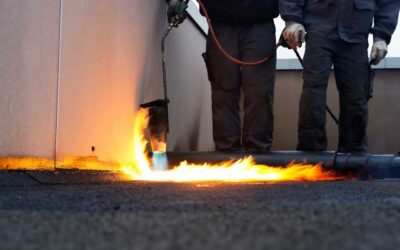🏠 Your Complete Guide to Choosing the Best Roofing Contractors
SEO Keywords: best roofing contractors, top roofing companies, how to choose roofing contractor, roofing contractor tips, roofing contractor reviews, hiring roofing professional
Table of Contents
- Why the Right Contractor Matters
- Top-Ranked Roofing Contractors
- How to Choose the Best Roofing Contractor
- Key Red Flags to Avoid
- What to Expect During the Hiring Process
- Questions to Ask Before Hiring
- Detailed Comparison of Contractor Credentials
- Working with Local vs National Roofers
- Warranty, Insurance & Contract Essentials
- FAQs
- Conclusion: Your Roofing Success Checklist
1. Why the Right Contractor Matters
Your roofing contractor can make or break your home improvement project. Hiring an unqualified or unscrupulous roofer could lead to leaks, premature material failure, or even legal headaches. According to recent reports, homeowners have lost tens of thousands of dollars to fraudulent roofers who never complete the work—or perform it poorly(usqualityconstruction.com, Architectural Digest). Choosing the right contractor ensures safety, quality, warranty coverage, and long-term peace of mind.
2. Top-Ranked Roofing Contractors
While exact rankings change frequently, a few national players are consistently highly regarded in the industry:
- CentiMark Corporation — National commercial roofing leader with over 80 offices and a top Dun & Bradstreet 5A1 rating(Wikipedia).
- Jasper Contractors, Inc. — Specializing in storm restoration and wide coverage across the U.S. since 2004(Wikipedia).
- Regional general contractors like Brasfield & Gorrie generally focus more on institutional work, but some have strong residential divisions(Wikipedia).
However, the best contractor for your job may be a reputable local or regional company with deep roots in your community.
3. How to Choose the Best Roofing Contractor
📍 Local vs National: What Matters
Local contractors offer:
- Familiarity with regional building codes, climate challenges, and permitting.
- Reputation built through referrals and experience in your neighborhood(GP Martini Roofing Co. | Exton PA Roofer).
National firms often provide:
- Broader operational scale and resources.
- Certifications with major shingle manufacturers.
✅ Essential Vetting Criteria
- Valid License, Bonding & Insurance – Confirm licensing and request proof of liability and workers’ comp insurance(Wikipedia, Bill Ragan Roofing, srctn.com).
- Certifications from Manufacturers – Look for designations like GAF Master Elite, Owens Corning Preferred, or CertainTeed SELECT ShingleMaster(1stoproofing.com).
- Years in Business & Volume – Experience indicates stability; avoid companies with spotty ownership history or recent rebranding(Facilitiesnet).
- Service & Safety Record – Ask about response times for repairs and whether the installer offers follow-up service(Facilitiesnet).
- Track Record & References – Request past client contacts and visit completed job sites when possible(Angi).
4. Key Red Flags to Avoid
Watch out for these warning signs:
- Aggressive door-to-door sales or “we just happen to be in the area” pitch—common among storm chasers(CT Insider).
- Requests for large upfront deposits greater than ~10–15% of cost, especially in cash(The Spruce).
- No written contract, vague estimates or missing project details(The Spruce).
- Lack of valid license or insurance documentation(The Spruce).
- Poor online presence or missing physical address, no verifiable reviews(The Spruce, CSAA Insurance Group).
- Pressure to sign immediately or bypass permit processes(The Spruce).
5. What to Expect During the Hiring Process
✅ Step-by-Step:
- Independent Roof Inspection: Consider paying ~$600–1,500 for a licensed roof inspector if major replacement is recommended(Cedar Shake Roofing, Wall Street Journal).
- Request Multiple Quotes: Collect at least three detailed bids based on the same scope and materials(certitudehi.com).
- Review Written Estimates: Ensure they include labor, materials, cleanup strategy, timeline, and payment schedule(Angi).
- Contract & Payment Terms: Only pay in installments tied to job progress; avoid large upfront payments(The Courier-Mail).
- Monitor Progress and Record-Keeping: Confirm date milestones and check daily updates; avoid discrepancies(Angi, Facilitiesnet).
6. Questions to Ask Before Hiring
When interviewing contractors, ask:
- Are you licensed, bonded, and insured?
- Can you provide manufacturer certifications (e.g. GAF, Owens Corning)?
- How many years have you operated under this name?
- May I visit previous jobs or speak with references from the past year?
- Do you offer a workmanship warranty? For how long?
- Who handles repairs after installation?
- What brands of roofing materials do you use?
- How do you ensure cleanup and safety during the project?
- Can I cancel within three days if needed?(Haynes Construction & Restoration Inc., Southern Living, 1stoproofing.com, certitudehi.com)
7. Comparison Overview: Contractor Credentials
| Feature | Why It Matters |
|---|---|
| License & Insurance | Protection against liability or workplace injury |
| Certifications | Certified installers can offer extended warranties |
| Years in Business | Demonstrates stability, less risk of abandonment |
| References & Portfolio | Verifies proven workmanship and client satisfaction |
| Warranty & Service Support | Ensures issues are fixed post-project |
| Local Presence | Familiar with codes and available for future service |
These qualities separate reputable contractors from risky ones.
8. Working with Local vs National Roofers
Benefits of Local Roofing Companies:
- In-area reputation to uphold.
- Knowledge of local climate and building code.
- Better response for future repairs or warranty calls(GP Martini Roofing Co. | Exton PA Roofer, 1stoproofing.com, srctn.com, CSAA Insurance Group, certitudehi.com).
Benefits of National Firms:
- Larger scale operations and resources.
- Certified with multiple manufacturers.
- May handle complex storm-related claims (e.g. Jasper Contractors)(Wikipedia).
Best practice: compare both options and prioritize reputation, service quality, and warranty integrity.
9. Warranty, Insurance & Contract Essentials
Insurance Coverage:
- Confirm liability and workers’ comp to protect yourself from on-site accidents(CSAA Insurance Group, Bill Ragan Roofing).
Warranties:
- Seek at least 10-year workmanship warranty, preferably longer.
- Look for contractors offering manufacturer-backed warranties when certified(Bill Ragan Roofing).
Contracts Should Include:
- Full scope of work and materials.
- Payment schedule and permit responsibilities.
- Timeline with milestones and cleanup strategy.
- Warranty details and cancellation clauses(Cedar Shake Roofing, Wall Street Journal).
10. FAQs
Q: How many estimates should I get?
A: At least three from reputable contractors quoting based on the same project details.
Q: What’s a red flag in a contractor’s contract?
A: Missing specifics, ambiguous scope, no payment schedule, or missing warranty terms.
Q: Can I pay more than deposit upfront?
A: Ideally only ~10–15% deposit—never pay full or majority until work is completed(The Spruce, Cedar Shake Roofing).
Q: Are manufacturer certifications really necessary?
A: Yes—they indicate training, quality assurance, and access to extended warranties(1stoproofing.com, Bill Ragan Roofing).
Q: Should I get a paid inspector if a contractor offers a free estimate?
A: Absolutely. Independent inspectors can avoid biased recommendations to upsell full replacement(Wall Street Journal).
11. Conclusion: Your Roofing Success Checklist
✅ Before Hiring:
- Verify current license, insurance & bonding
- Ask for manufacturer certifications
- Confirm years in business and local reputation
- Obtain 3+ detailed estimates
- Interview references within last year
- Insist on a written contract with scope, timeline, and cleanup plan
- Arrange installment payments—avoid large upfront cash
- Ensure workmanship and materials warranty coverage
Choosing the best roofing contractor might take time—but it safeguards your home, investment, and long-term comfort. The right professional offers quality materials, expert installation, solid communication, and guaranteed performance.
Need help finding certified contractors in your region—or a template for comparing estimates side by side? I’d be happy to assist further.
 (440) 307-2060
(440) 307-2060




